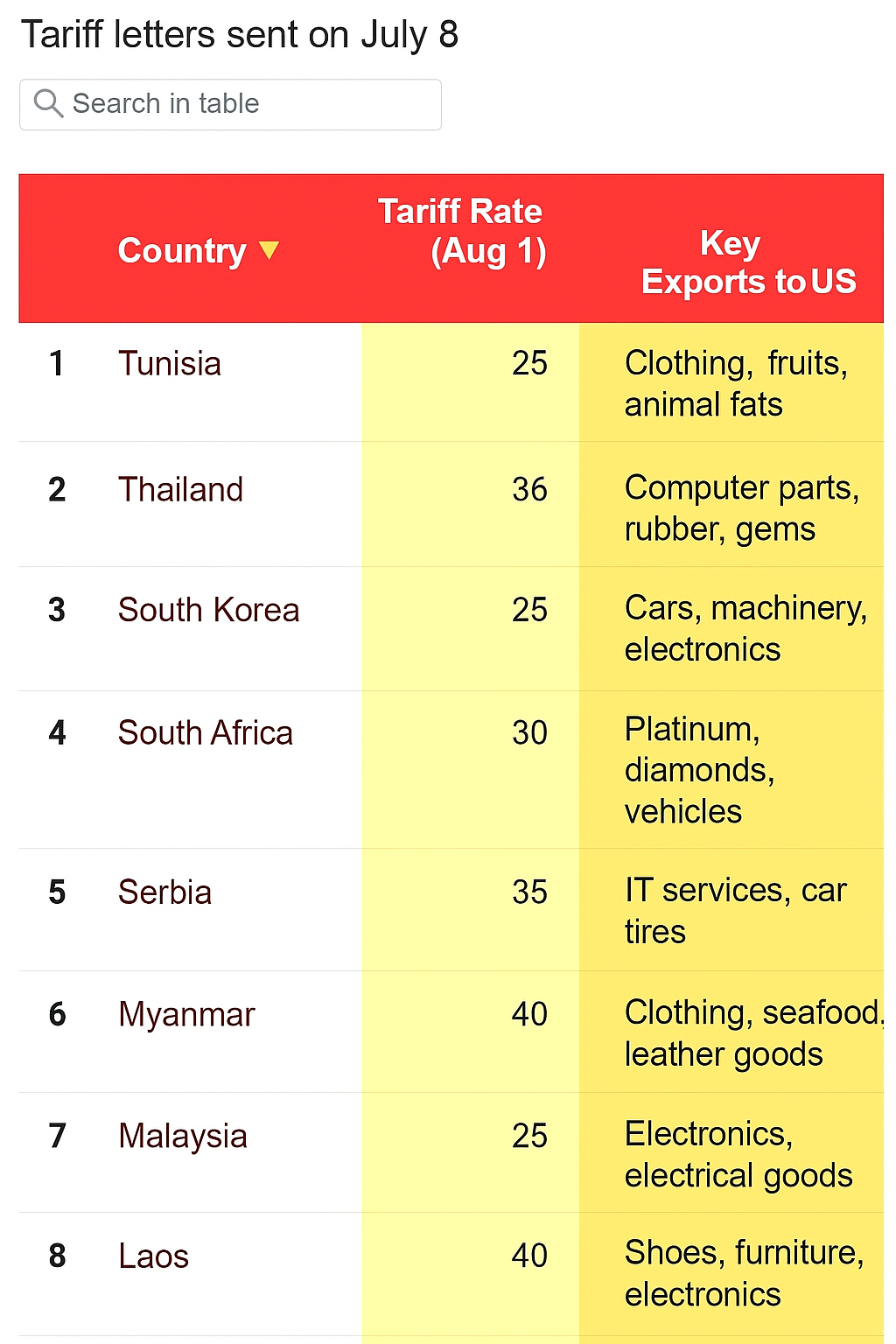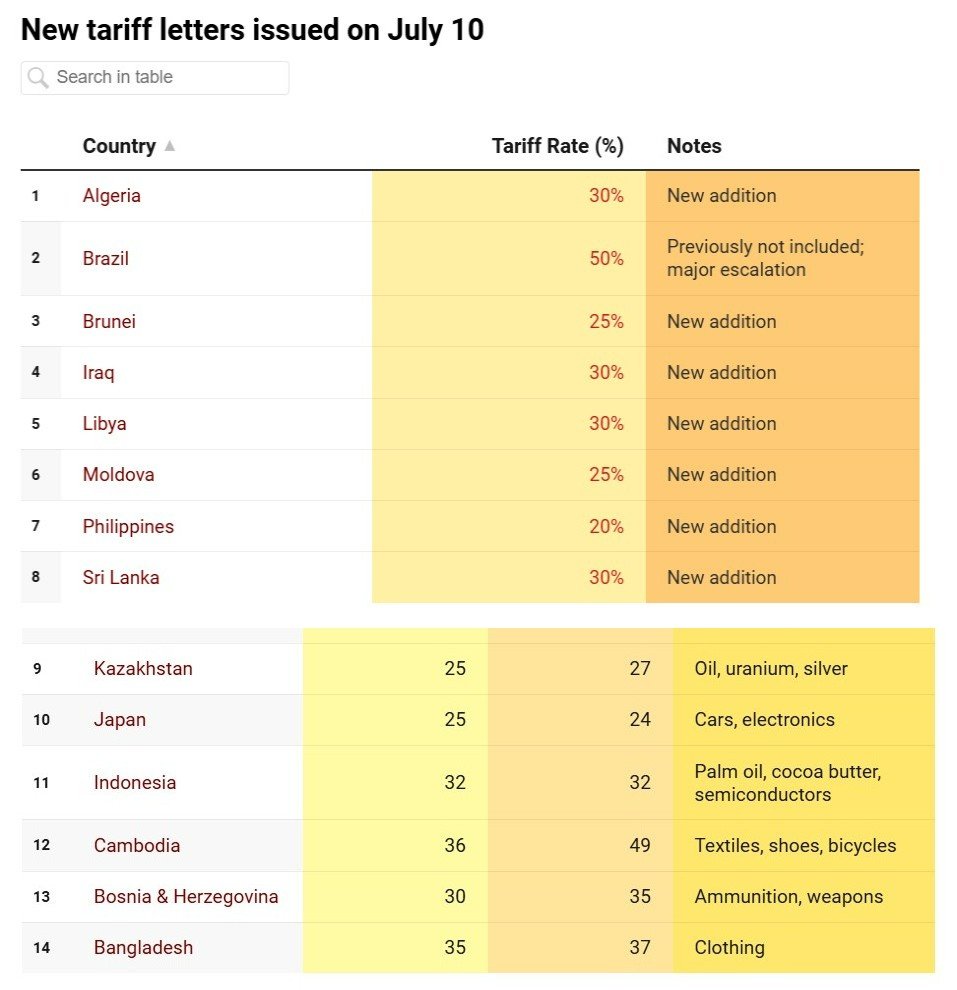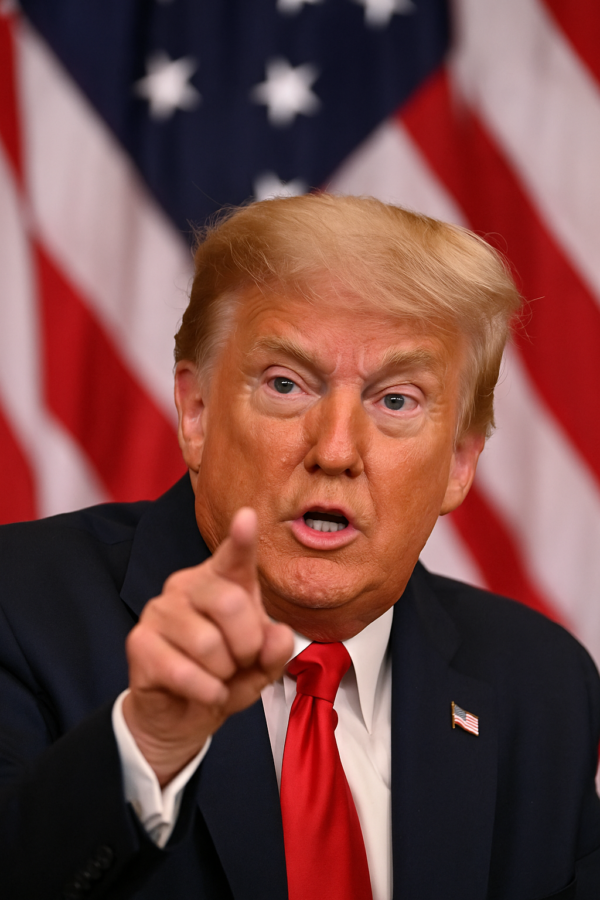Trump Escalates Trade War With Global Tariff Letters
US President Donald Trump has reignited global trade tensions by sending formal tariff threat letters to 21 countries, warning of significant hikes in import duties set to take effect from August 1, 2025, if new trade deals aren’t reached. The move is a direct extension of his self-described “reciprocal tariff” policy, first announced in April 2025, and comes amid a volatile international trade environment. Trump’s administration insists the step is part of a broader effort to eliminate trade imbalances and protect American industries, though the abruptness and scale of the initiative have stirred considerable diplomatic concern.
Initial Round Targets Strategic and Economic Allies
Earlier this week, Trump dispatched letters to 14 countries including key US trading partners and strategic allies like Japan, South Korea, and South Africa. These letters detailed new or adjusted import levies ranging from 25% to 40%, depending on the nature of each country’s trade relationship with the US. The message was clear: renegotiate trade terms on America’s terms, or face steep economic consequences. These letters reportedly included clauses warning that any retaliatory tariffs would prompt even harsher duties from Washington, escalating the stakes and prompting swift international responses.

Second Batch of Letters Targets Smaller Economies
On Thursday, Trump followed up with a second wave of tariff letters addressed to eight additional countries: Brazil, the Philippines, Brunei, Moldova, Algeria, Libya, Iraq, and Sri Lanka. These letters introduced even higher tariff rates in some cases, with Brazil facing a dramatic 50% levy, while others, such as Brunei and Moldova, were hit with 25%, and African and Middle Eastern countries like Algeria, Libya, and Iraq facing 30%. Analysts say this second group of countries largely comprises smaller economies with limited industrial exports to the US, raising questions about the rationale behind the selection.

Brazil Tariff Sparks Political Controversy and Backlash
The 50% tariff imposed on Brazil has generated the most intense backlash so far. Many observers view the move as politically motivated rather than economically justified. Brazilian President Luiz Inacio Lula da Silva has strongly condemned the decision, vowing retaliatory measures and accusing Trump of attempting to influence Brazil’s internal affairs. The situation is further complicated by Trump’s vocal support for Jair Bolsonaro, Brazil’s former president, who is currently on trial for alleged involvement in a failed coup attempt following his 2022 election loss. The diplomatic fallout has quickly escalated into a broader standoff between the two nations.
Trump Defends Tariffs as ‘Common Sense’ Economics
In his public remarks, Trump has repeatedly claimed that his tariff strategy is rooted in “common sense” and a desire to correct what he sees as unfair trade imbalances. “I love tariffs,” he famously stated, defending his latest wave of import taxes as a necessary step to restore American economic sovereignty. However, economists have criticized the blanket nature of the tariffs, especially targeting countries that hold little competitive threat to the US. Nations like the Philippines, Moldova, and Sri Lanka are not major exporters of industrial goods to the US, making the rationale behind their inclusion appear arbitrary.
Selective Diplomacy and Friends Exempted From Tariffs
Interestingly, Trump confirmed that several African nations whose leaders recently visited the White House—Liberia, Senegal, Gabon, Mauritania, and Guinea-Bissau—were exempt from the new tariffs. “They’re friends of mine now,” Trump said, emphasizing personal diplomacy as a key determinant of economic policy. This admission has further fueled criticism that the tariff strategy lacks a coherent economic framework and is instead driven by political loyalty and favoritism. Critics argue that such an approach undermines trust in US trade policy and sets a dangerous precedent for future negotiations.
Analysts Warn of Rising Trade Instability Ahead
Global markets have reacted cautiously to the news, with analysts warning that Trump’s escalating tariff threats could trigger a new wave of protectionism worldwide. The potential for retaliatory tariffs looms large, especially from countries like Brazil, Japan, and South Korea, which have significant economic leverage. While Trump’s supporters argue that tough trade measures are necessary to defend US jobs and industry, many economists caution that a full-blown trade war could harm American consumers, disrupt supply chains, and isolate the US on the global stage if diplomacy fails before the August 1 deadline.








